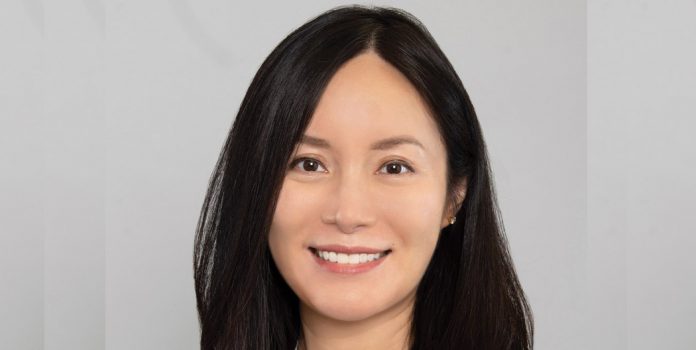Although extremely rare, adverse events have occurred after COVID-19 vaccinations, and people affected have exercised their rights to seek compensation. However, the U.S. government program that considers COVID-19 vaccine injury claims lacks accountability, transparency and cost-effectiveness, according to a recently published study led by a researcher in the Hudson College of Public Health at the University of Oklahoma Health Sciences Center.
The study, published in the current issue of the Journal of Law and the Biosciences, was led by Junying Zhao, Ph.D., Ph.D., an assistant professor of health administration and policy at the Hudson College of Public Health. The study provides the first-ever economic examination of the government’s Countermeasures Injury Compensation Program (CICP), whose design is rife with unintended consequences, Zhao said.
The CICP has its roots in the Public Readiness and Emergency Preparedness (PREP) Act, which was enacted by Congress in 2005. The PREP Act authorizes the U.S. Department of Health and Human Services (HHS) to issue a declaration in response to a public health emergency like COVID-19. As part of the declaration, companies that manufacture and distribute vaccines, as well as medical professionals and others who administer them, are granted immunity from tort liability claims — essentially, they cannot be sued in state or federal courts for any injury or death.
The PREP Act rightfully eliminates liability concerns for the large number of people quickly responding to a public health crisis like COVID-19, Zhao said. But the U.S. government still must provide a mechanism to compensate individuals and families when the evidence shows a person was harmed or died as a result of receiving the vaccine. The CICP was created to address injury claims related to public health emergencies.
“My expertise is applying economics to the intersection of medicine and law,” Zhao said. “A particular branch of law relevant to healthcare is tort law. When COVID-19 vaccinations became available, I became interested in how someone would seek justice if they were injured, or how their families would be compensated if a family member died. Although it has been very rare — only three adverse events reported per one million people in our study — we still need a fair program for people to seek compensation.”
Zhao’s discovery of the inadequacies within the CICP came after comparing it to the government’s decades-old program that responds to vaccine injury claims concerning traditional vaccines against the measles, seasonal flu and others that are administered routinely, not in response to an emergency like COVID-19. Called the Vaccine Injury Compensation Program (VICP), it is located within the judicial branch of the federal government and operates in a typical court fashion in which attorneys for both the plaintiff (the person seeking compensation) and defendant (HHS) present evidence to a judge who specializes in vaccine injury cases.
In contrast, the CICP is located within the administrative branch, specifically HHS. Medical experts working for HHS make decisions for vaccine injury claims rather than each side making its case before a judge.
“In the CICP program, HHS serves as both the defendant and the judge,” Zhao said. “There is no third party to make sure both sides are heard. The design of the program incentivizes HHS to reject claims in order to reduce budget expenses.”
That assertion is reflected in the compensation amounts awarded by CICP as compared to the non-emergency VICP. In her study, Zhao found that the average compensation per adjudicated claim from the VICP is $243,129, while the average compensation from the CICP is $45,697. That translates to about one-fifth the amount of compensation for a COVID-19-related vaccine injury compared to the amount awarded for injuries caused by non-emergency vaccines.
“If someone has a mild adverse event, $45,000 may be sufficient,” Zhao said, “but what if a family’s primary breadwinner is temporarily or permanently disabled, or dies? In that case, $45,000 is not nearly enough to support a family in a lifetime, nor is it the worth of life.”
Zhao also found discrepancies in the administrative costs between the CICP and VICP. Administrative costs in the VICP are $24,000 per claim, money that pays judges, attorneys and medical experts. In contrast, the administrative cost per claim in the CICP is $40,000, which only pays medical experts within HHS.
The study highlighted another potential barrier for people seeking compensation for a COVID-19 vaccine injury. If a person’s claim is denied by the VICP, he or she can file an appeal and the case is presented again before a judge. However, in the CICP, a person can ask for the claim to be reconsidered, but it is reviewed by a similar group of medical professionals with no transparency about their identity or credentials.
To conduct the study, Zhao took a deep dive into information from the White House budget and the Department of Treasury. Her findings are especially relevant given that the CICP and VICP fulfill the same role, yet have such different structures and spending outcomes. Since the CICP began with the PREP Act in 2005, it has experienced only occasional public health emergencies, such as the H1N1 influenza outbreak in 2009 and the ongoing COVID-19 pandemic. The VICP, in contrast, has been operating continuously since 1986 with lower administrative costs and higher compensation payouts.
In the publication, Zhao makes several policy recommendations that would improve the compensation process for future public health emergencies. They include merging the CICP and VICP and locating the single program in the federal claims court, which is the VICP’s current home. Alternatively, the publication recommends that Congress consider incremental changes, such as judicial review of the CICP, increased transparency, financial and performance audits, and more cost-effective use of taxpayer money.
The publication produced by the study was rigorously peer-reviewed, Zhao said, and fills a gap of knowledge about the compensation process during public health emergencies. The PREP Act is essential for a rapid response to crises like COVID-19, Zhao said, and vaccine adverse events continue to be exceedingly low in proportion to the number of vaccines administered. But Americans deserve a fair and transparent opportunity to seek compensation when they feel they have been harmed, she said.
“Vaccines are incredibly important for public health, but the design of the federal CICP represents a conflict of interest and lacks checks and balances,” she said. “From a public health and public policy perspective, the program needs to be improved so that it more effectively reduces vaccine hesitancy by serving as a warranty for vaccine safety.”
The publication can be found at https://academic.oup.com/jlb/article/9/1/lsac008/6555422. Zhao’s team included several faculty researchers from the Department of Economics at the University of Oklahoma’s Norman campus: Firat Demir, Ph.D., Pallab K. Ghosh, Ph.D., and Myongjin Kim, Ph.D.; and Austin Earley, graduate student researcher in the Hudson College of Public Health at the OU Health Sciences Center.














